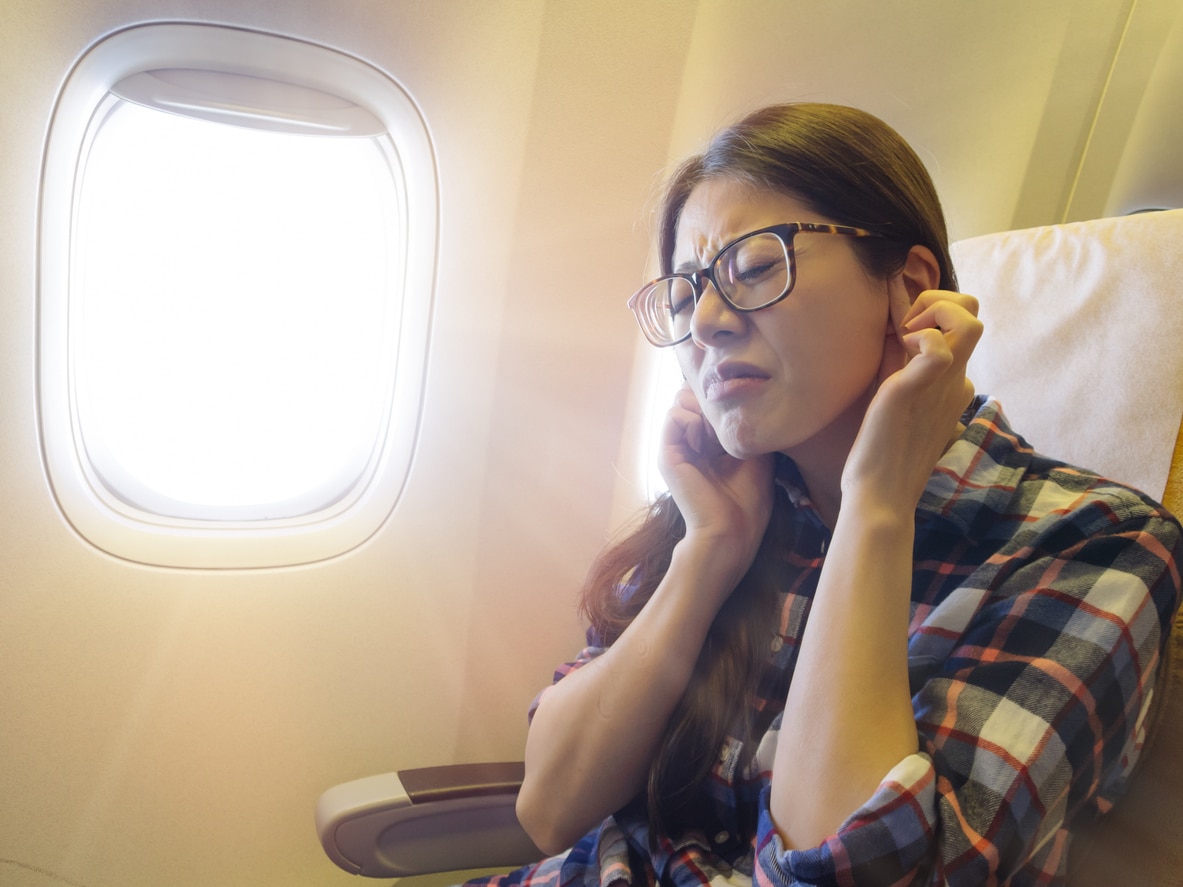Airplane ear, so called because it occurs most frequently during take-off and landing during a flight, is one of the most common health problems for people traveling on air routes. It is a condition most often associated with popping in the ears but may exhibit other symptoms including but limited to:
- Discomfort or pain in your ears
- Muffled hearing
- Slight to moderate temporary hearing loss
- Feeling of fullness or stuffiness in your ear
Severe cases may also include ringing in the ears (tinnitus), greater pain and pressure, vertigo and bleeding in the ears.
Airplane ear occurs when there is an imbalance of pressure between the air in your environment and the air in the middle ear. The imbalance of pressure prevents the eardrum from vibrating normally and affects the Eustachian tube’s ability to equalize pressure, leading to the symptoms of airplane ear.
While most cases of airplane ear disappear shortly after flight, some may be severe or result in lasting hearing loss. There are a couple of treatments and preventative methods available for airplane ear, including:
- Swallowing or yawning
- The Valsalva maneuver
- Avoiding flights while sick
Let’s look at each of these techniques a little more closely so that you may be able to avoid airplane ear on your next flight out of the Vero Beach Regional Airport.
Swallowing or Yawning

Swallowing or yawning helps open the Eustachian tube, allowing it to bring air to the middle ear and equalize pressure. Chewing gum and sucking on hard candies are great ways to engage this preventative measure as they promote increased swallowing frequency.
The Valsalva Maneuver
The Valsalva maneuver is used to equalize pressure in your ears during take-off and landing. The maneuver follows two simple steps:
- Pinch your nostrils and close your mouth
- Blow air into your nose as if you are blowing your nose into a tissue
Doing this maneuver repeatedly during landing and take-off can help prevent airplane ear from occurring.
Avoid Flights While Sick
Certain illnesses can make instances of airplane ear more likely or severe. These illnesses may include but are not limited to:
- Ear infections
- Sinus infections
- Nasal congestion
While it is always best to avoid flying while sick to prevent the spreading or worsening of illnesses, you should consult your doctor before flying with ear and sinus infections or nasal congestion if you are subject to frequent airplane ear.
Contact Aaron's Hearing Aid & Audiology Center today to make an appointment with one of our ear, nose and throat specialists.
